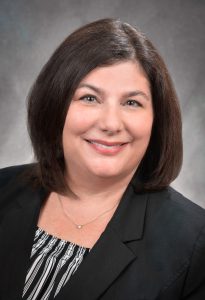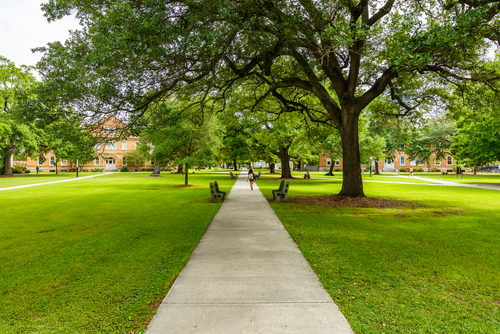Members of PRSA’s Counselors to Higher Education Section will meet April 11–13 in Nashville, Tenn. for their annual Senior Summit. Ahead of the event, PRsay asked three Section members about the state of their sector. (Read the other entries here and here.)
These questions were answered by Jeanette DeDiemar, Ph.D., vice president and chief marketing and communications officer at University of Indianapolis and Chair of the Summit Planning Committee:

What are the biggest challenges that communications leaders in higher education face today?
In higher education, communications professionals are facing unprecedented challenges — from breaking through the cacophony of competing voices on social media to uncertain government policies, increased costs, and intensified audience and stakeholder expectations.
The evolution of technology also continues to have a significant influence on how we articulate and illuminate the impact of communications. There is an increasing need to understand data and use it in ways that resonate across diverse audiences. In this environment of the 24/7 media cycle, how we create and stimulate a content strategy supported by an institution-wide culture is critical.
What remains imperative is our ability to listen, and to create and implement cogent, accurate communications strategies across an institution’s core audiences. We also need to be skillful in choreographing content strategies — while using technology and data — that speak to what makes us different. Inspiring others to communicate about our institutions, our students and alumni in ways that positively amplify brand reputation is an ever-present challenge. We must navigate the uncertainty of the day while also guiding the organization to tomorrow.
Our success is not necessarily aligned with the number of communications professionals on staff, but rather with the institution’s scope and capacity to be networked in ways that foster a choreographed collaboration, one that is outcome-focused and unflinching in its support of the institution’s mission.
Given the increasingly polarized state of college campuses today, how does a university communicator remain balanced?
At no other time in the academy’s history has higher education been under this kind of microscope, where everything is magnified and “bad news travels fast.” State and federal governments are changing how institutions work, whether that means eliminating research funding, taxing endowments, or evolving Title IX (a 1972 civil rights law that bans discrimination on the basis of sex in education programs that receive federal financial assistance).
Every day, communications leaders face the challenge of balancing dissonant views and information. Our role often requires “seeing around the corner” to understand the impact of what could and what needs to be communicated, while defining messaging strategies that reach and resonate with a variety of audiences and influencers. An ever-present risk is polarization, which often arises from incomplete or misunderstood messages that are shared too late.
More than ever, communicators are needed to provide expertise and guide executive leadership so they can reach internal and external audiences with cogent messages and information in venues that expedite understanding. Just as important, we need to magnify what makes the institution human and empathetic.
Rather than shy away from the most pressing issues of the day, we should find opportunities to engage honestly with those issues, own what needs to change and remain confident in who we are and what we do.
What other issues will be foremost during the CHE Senior Summit?
As communications leaders in higher education face unprecedented challenges and uncertainties, it is imperative that we understand those trends in order to lead our institutions, provide counsel and deploy solutions. Programming at the CHE Senior Summit will broaden communicators’ knowledge of how to navigate today’s challenging environment by bringing together the expertise of policy advocates, journalists, senior administrators and university-communications leaders from across the country.
As communications leaders, we have to identify and implement actionable behaviors to shift social perceptions of higher education and engage in substantive discussions on issues that impact our campuses. Senior Summit offers an opportunity to dig deep into these issues with honest, candid conversations about topics and scenarios affecting our institutions and our roles as professional communicators.
Our CHE Summit is a chance to not only participate in discussions that are relevant and essential to our work, but also to learn about strategies that can be taken back to campus and implemented immediately.







